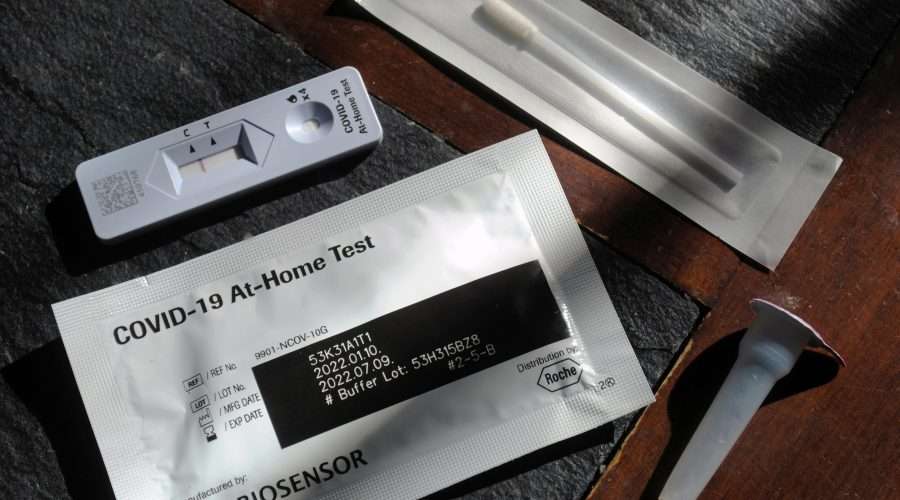As the pandemic evolves, self-testing for COVID-19 has become an integral part of managing and monitoring the spread of the virus. Lateral flow tests, particularly prevalent in the UK, offer a rapid means to detect the presence of the virus. The accuracy of these lateral flow tests in the UK can be influenced by a number of variables. It’s essential to recognise these factors to ensure that the results you obtain from a self-test are as accurate as possible.
The quality and components of the test kit itself are crucial. A high-quality test kit should include clearly outlined instructions, properly sealed test cassettes, and all necessary components like swabs and buffer tubes. Ensuring the kit has not expired and has been stored according to manufacturer guidelines is equally important. Additionally, the way you perform the test can significantly impact the result. A correct swabbing technique and precise adherence to the testing procedure are necessary for a reliable outcome.
Key Takeaways
- The accuracy of self-testing relies on high-quality test kits.
- Correct test procedures and techniques are fundamental.
- Storage conditions and kit expiry dates are crucial for valid results.
Test Kit Components and Quality
When you perform a COVID-19 self-test, the components’ quality and the conditions under which the kit has been stored play a crucial role in the accuracy of your results.
Quality of Components
The reliability of a COVID-19 self-test is heavily influenced by the quality of its components. Each kit contains several critical items, such as a swab for sample collection, a chemical solution known as a reagent, and a test strip or cassette. It’s essential that these are manufactured to meet strict quality standards. High-quality swabs must collect a sufficient and uncontaminated sample, while the reagent should be formulated to react correctly with the SARS-CoV-2 virus if present. Test strips or cassettes need to display results clearly to avoid misinterpretation.
Expiry Date and Storage Conditions
Every COVID-19 self-test kit comes with an expiry date, which you must check before use. Using a test kit past its expiry date can lead to false results, as the chemicals may degrade over time. Additionally, proper storage conditions are vital; your test kit should be kept in a cool, dry place away from sunlight. If stored in environments with extreme temperatures or humidity, the likelihood of a compromised test increases, potentially leading to inaccurate results. Therefore, always adhere to the recommended storage guidelines provided with your test kit.
User-Dependent Factors
The accuracy of your COVID-19 self-test can be significantly influenced by factors such as your comprehension of the instructions, the technique you use for sample collection, and the timing at which you perform the test after potential exposure.
Understanding the Instructions
You must carefully read and understand the instructions provided with your COVID-19 self-test kit. Any deviation from the prescribed procedure may affect the test’s accuracy. It’s critical that you follow each step as outlined to ensure the validity of the test results.
Sample Collection Technique
The way you collect the sample directly impacts the reliability of your COVID-19 self-test result. Ensure that you collect a sample properly, which often involves a nasal swab. An inadequate sample or incorrect swabbing technique can lead to a false negative result.
Timing of the Test Post-Exposure
The timing of when you conduct a self-test after you believe you’ve been exposed is crucial. Testing too early may result in a false negative result, as the viral load might not be detectable yet. Follow the recommended time frame since the potential exposure to ensure a more accurate result.
Conclusion
Accurate results from your COVID-19 self-tests hinge on several key factors. Primarily, adherence to instructions is paramount; missteps can influence outcomes. Equally, the timing of the test could affect the result, with early or late testing possibly leading to false negatives. The quality of the test kit used plays a role, and tests ought to be stored as specified to maintain their integrity.
Testing conditions and proper swabbing technique greatly impact the sensitivity and specificity outcomes. Errors in analysis and interpretation of the test can also drive inaccuracies. While self-tests offer a balance between convenience and speed, it’s crucial you are aware of potential variances in reliability.
For further detail on self-test accuracy, the studies “Diagnostic accuracy and feasibility of patient self-testing with a SARS …” and “The Diagnostic Accuracy of SARS-CoV-2 Nasal Rapid Antigen Self-Test: A …” can be examined.
For more news click thebritaintimes.co.uk
